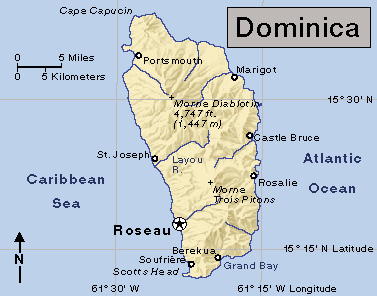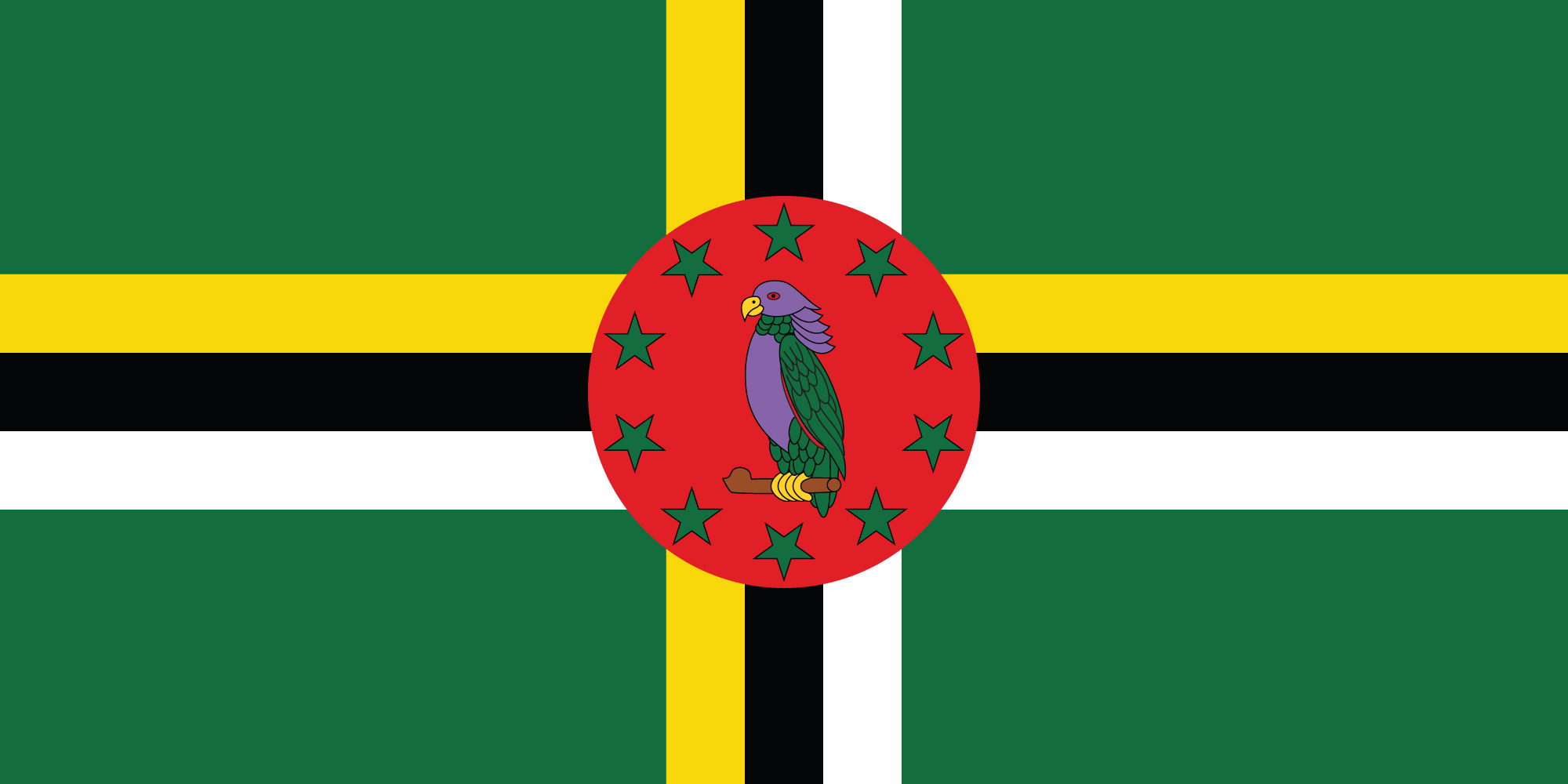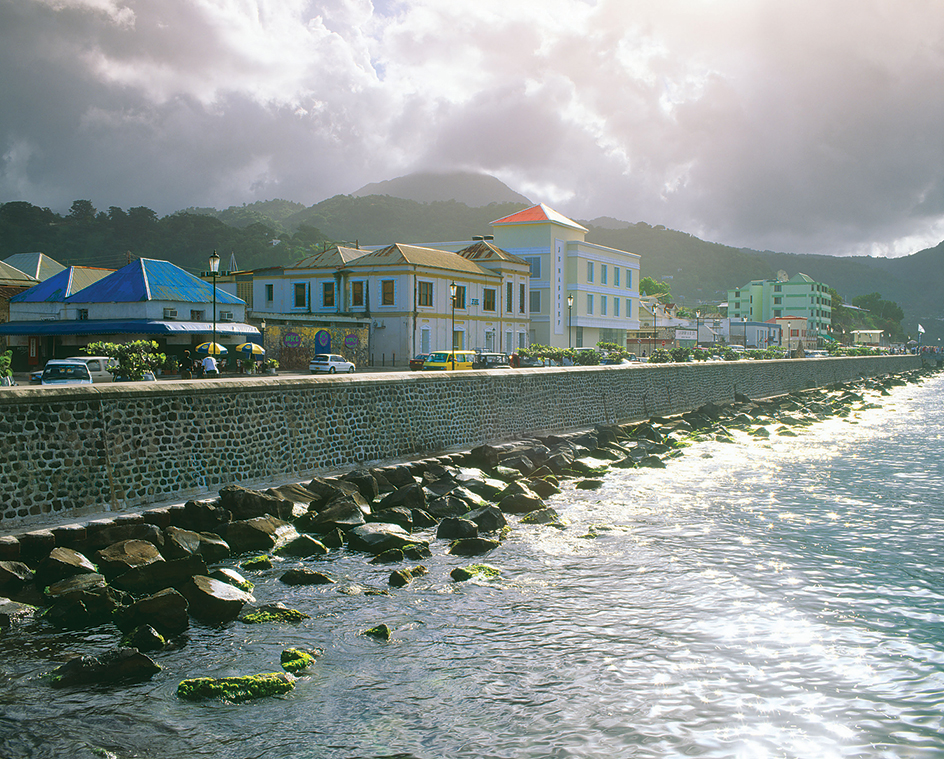Dominica, << `dom` uh NEE kuh or duh MIHN uh kuh, >> is a small island country in the Caribbean Sea. It consists of one island that lies 320 miles (515 kilometers) north of the Venezuelan coast.

Dominica became independent in 1978 after being ruled by Britain (later also called the United Kingdom) since the 1700’s. Its official name is Commonwealth of Dominica. Roseau, which has a population of about 15,000, is the capital and largest city. Dominica’s basic unit of money is the East Caribbean dollar.
Government.
Dominica is a republic. A president is officially the country’s chief executive. But a prime minister is the most powerful official. The prime minister is a member of a Cabinet, which conducts the operations of the government. A legislature called the House of Assembly makes the nation’s laws. It consists of 21 members elected by the people and 9 appointed by the government. The legislature elects the president. The prime minister is the leader of the political party with the most seats in the legislature. For Dominica’s current leaders, see World (table: Independent countries and their leaders) . 
People.
Most Dominicans have African or mixed African, British, and French ancestry. A small percentage of Dominicans have mostly Carib Indian ancestry. About two-thirds of the people live in urban areas, and the rest live in rural areas. Most of the people of Dominica wear clothing like that worn elsewhere in the Americas. Their main foods include bananas, crabs, crayfish, lobsters, and sweet potatoes.
The majority of Dominicans who live in cities speak English, the nation’s official language. The villagers chiefly speak a patois (dialect) that is a mixture of African languages and French. About 60 percent of the people are Roman Catholics, and most of the rest are Protestants.
Land and climate.
Dominica is a mountainous, tree-covered island formed by volcanic eruptions. Some mountains in the north and south rise over 4,000 feet (1,200 meters). Flatland lies on parts of the coast. The country has many rivers, but most are too rough to be used by boats. Temperatures in Dominica seldom rise above 90 °F (32 °C) or fall below 65 °F (18 °C). Annual rainfall ranges from 79 inches (201 centimeters) in Roseau, on the southwest coast, to 400 inches (1,000 centimeters) in the mountains. 
Economy.
Agriculture and tourism are important to Dominica’s economy. Many people either work on farms or are employed in processing agricultural products. Bananas have long been the country’s chief product. Hundreds of thousands of tourists and cruise ship passengers visit the country each year. Manufacturing and mining are minor economic activities on the island.
History.
Arawak Indians, Dominica’s first inhabitants, settled there about 2,000 years ago. Carib Indians took over the island about 1,000 years later. On Nov. 3, 1493—a Sunday—Christopher Columbus became the first European to sight the island. He named it Dominica, the Latin word for Sunday.
French and British settlers began to arrive in Dominica in the 1600’s. For many years, the Carib, British, and French fought for control of the island. The British gained possession of it in 1763 and shipped African slaves to Dominica as farmworkers. The slaves were freed in 1834, the year after the United Kingdom abolished slavery throughout its empire. From the 1930’s to the 1970’s, the British increased Dominica’s control over its own affairs. Dominica became independent on Nov. 3, 1978.
In 1979, Hurricane David killed 37 people and caused much damage in Dominica. In 1983, Dominica and several other Caribbean nations joined the United States in an invasion of Grenada , a nearby island country, to end a Marxist rebellion there. In 2017, Hurricane Maria devastated Dominica, killing 65 people and causing widespread damage.
See also Roseau .
